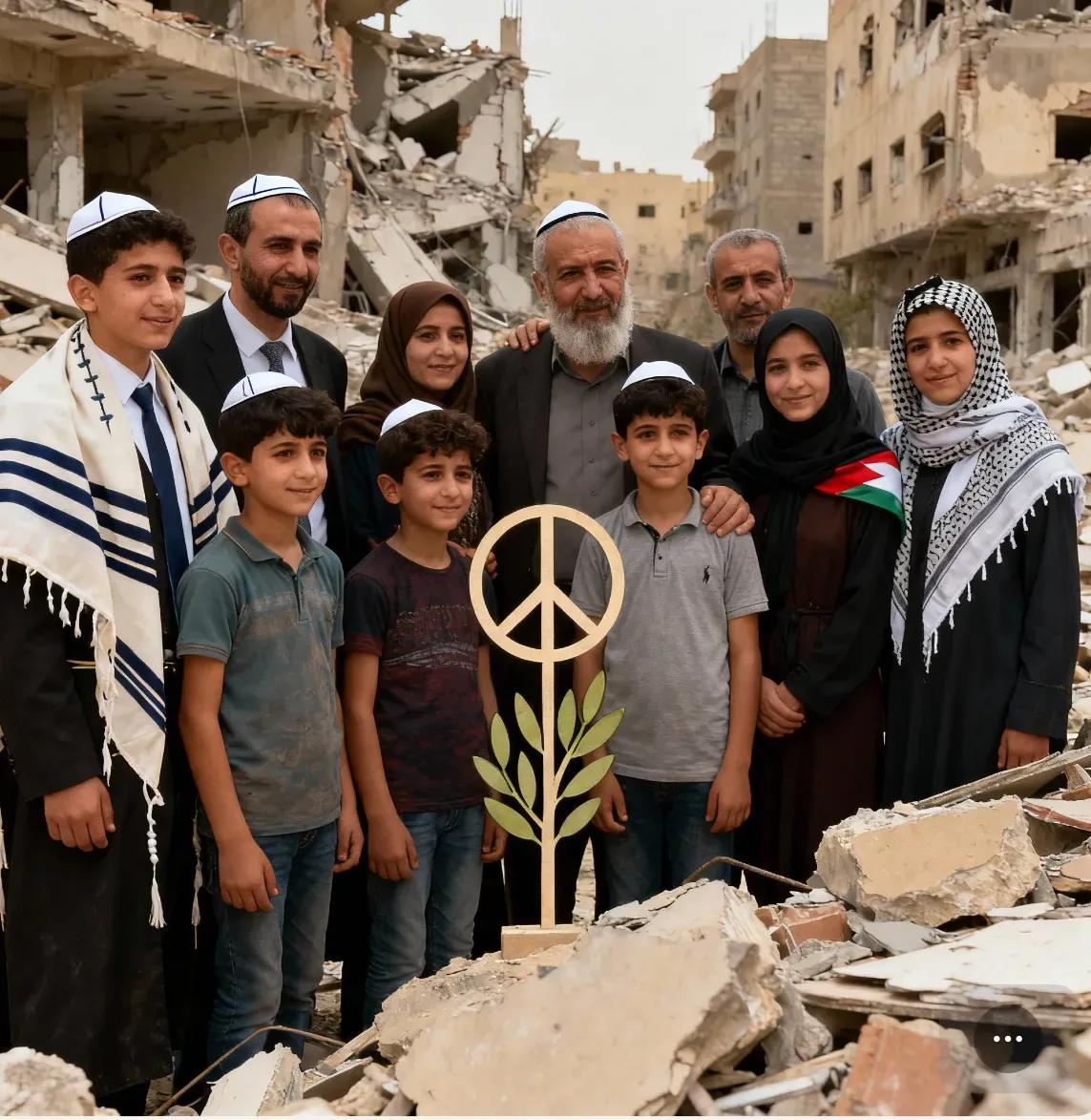William Acosta, CEO of Equalizer Investigations for FinGurú
Introduction
The recent history of Gaza and Israel is not just the sequence of geopolitical events or the accumulation of diplomatic resolutions. It is, above all, the devastating face of a population that endures horror and seeks, once again, to rise from its ruins. The signing of a new peace agreement between Israel and Hamas, led by President Donald Trump and surrounded by the attention of regional and global powers, comes after a wave of violence whose echo continues to reverberate in thousands of families. One cannot write about peacebuilding without placing at the center the pain of those in Israel who lost loved ones, suffered kidnappings, torture, and humiliations, and today live with immense and irreparable trauma (BBC News Mundo, 2025; France24, 2025).
The recent Israeli trauma and tragedy, characterized by murders, rapes, torture, and destroyed homes, are not mere cold numbers or arguments at discretion, but vital experiences that have split the history of a nation whose right to exist is openly attacked by hostile organizations and governments. This reality imposes an ethical duty to place dignity and fundamental rights at the heart of any reconciliation process. The memory of the victims demands that no solution be erected on the foundations of forgetfulness, impunity, or political calculation.
International Leadership, Existential Context, and Points of the Agreement
Alongside the pain of Israelis, the construction of the agreement emerged amid unprecedented diplomatic pressure. The U.S. administration, together with Egypt, Qatar, Turkey, and the European Union, managed to secure a ceasefire, hostage exchange, the deployment of multinational forces, and the promise of reconstruction under conditions of demilitarization (DW, 2025; BBC News Mundo, 2025; Infobae, 2025).
The people of Israel, surrounded by armed threats and regimes that proclaim their destruction as a goal, survive as an open, democratic, and plural society, fighting not only against the immediacy of missiles but against the international narrative that often relativizes or displaces their tragedy. In the face of this siege, their survival embodies the resistance of values, cultures, and rights that must garner global solidarity and support (France24, 2025; CNN Español, 2025).
The agreement includes a cessation of hostilities, a temporary technocratic administration for Gaza, humanitarian aid and reconstruction programs, international monitoring mechanisms, and procedures to investigate atrocious crimes.
However, the viability of these commitments depends on the real capacity to contain armed factions and ensure that their leaders and perpetrators do not find refuge in impunity (Amnesty International, 2025; United Nations, 2025).
Pros and Risks of the Agreement
The agreement offers the population a tangible possibility of reconstruction after years of dispossession and suffering (BBC News Mundo, 2025).
It facilitates social reintegration and the return of displaced persons with international support and ongoing monitoring (Infobae, 2025).
It allows for the prosecution of serious crimes before international bodies, with a restorative and justice-oriented approach for victims (Amnesty International, 2025).
It establishes unprecedented cooperation between Israel and Arab powers to strengthen regional stability and collective security (Escenariomundial, 2025; DW, 2025).
However, impunity remains a threat, as armed factions like Hamas or Hezbollah retain influence and operational capacity, which could reverse the gains if international pressure wanes (France24, 2025; AP News, 2024).
The model of unequal exchanges, where a single hostage implies the release of numerous convicted criminals, reinforces incentives for terrorism and distorts justice (Infobae, 2025).
Victims fear that memory and dignity will be sacrificed for opportunistic agreements, perpetuating the extortionist logic of those who use violence as a political tool (Amnesty International, 2025; United Nations, 2025).
Ethics, Justice, and the Right to Existence
Justice is not a luxury; it is a right. International criminal processes, dignified reparations, and acknowledgment of pain must be non-negotiable (Amnesty International, 2025; United Nations, 2025).
Israel, as a people and a state, deserves not only to survive but to receive firm protection and support against the direct and reiterated hostility of groups and regimes that openly preach its destruction (BBC News Mundo, 2025; France24, 2025).
The global narrative must incorporate the real testimony of the victims. No geopolitical or political argument can neutralize the truth of suffering.
If the international community tolerates extortion as the norm, it will lose the ethical opportunity to strengthen civility and authentic peace in the Middle East and beyond.
Conclusion
The narrative of Gaza and Israel, at this historical moment, is the account of the civilizational challenge that contemporary world faces. Supporting Israeli survival, restoring dignity to each victim, and maintaining memory as a non-negotiable horizon is more than a political duty; it is the foundation of ethics and coexistence. No peace process or tactical agreement will make sense if justice is not rewarded and those who make violence their mode of existence are contained. The international community has the responsibility to choose between surrendering to extortion and forgetfulness or building a peace grounded in truth, justice, and dignity.
About the Author:
William L. Acosta is a graduate of PWU and Alliance University. He is a retired New York police officer, as well as the founder and CEO of Equalizer Private Investigations & Security Services Inc., a licensed agency in New York and Florida with international projection.
Since 1999, he has led investigations in cases of narcotics, homicides, and missing persons, in addition to participating in criminal defense at both state and federal levels.
A specialist in international and multi-jurisdictional cases, he has coordinated operations in North America, Europe, and Latin America.

Comments